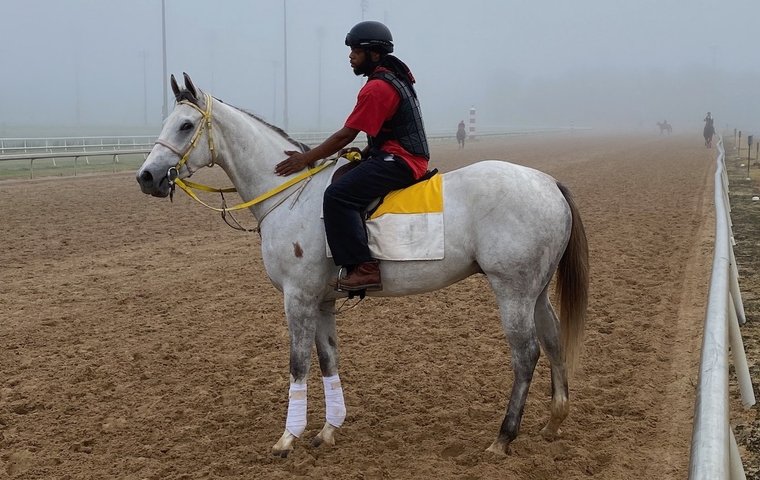
Although African-Americans are often notable only for their absence in the modern era across much of the US racing scene, they are still playing an integral role in Louisiana – as Ken Snyder reports
Immigration came in waves on the racetrack in America after World War II – Mexican nationals in the West, Puerto Ricans in the East. Others from Panama, Honduras, El Salvador, and more Central American countries followed, while today, Guatemalans make up the most recent wave on the backside of racetracks.
But there is one ethnic group that has maintained a place in American racing – declining, but still extant – going back as far as colonial times.
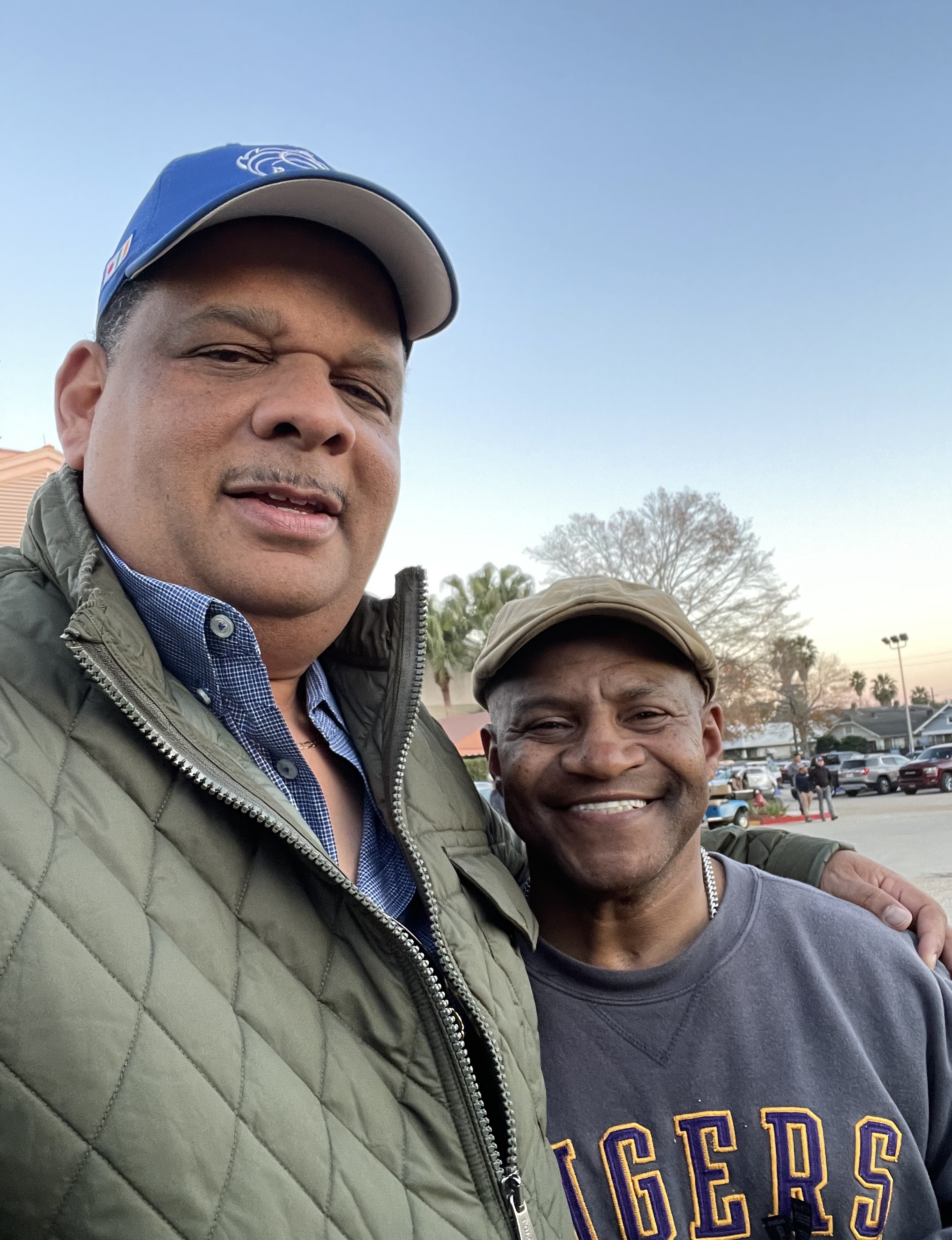
This group originated in one of the the traditional spawning grounds for American jockeys—what is known as Cajun country around the town of Lafayette in southwest Louisiana. And no, this is not about Cajun jockeys, but instead refers to a significant percentage of Black trainers and exercise riders in the region.
Approximately one in four exercise riders at the Fair Grounds in New Orleans is Black – and at the time of this writing, 14 of 59 trainers (just under 24%) with at least 10 starts at Delta Downs in Vinton, 90 miles west of Lafayette, are Black.
Solid place
Those figures came from Benard Chatters, a trainer on the Louisiana racing circuit and one of those 14 Black trainers at Delta Downs. His story, like those of so many other Black Louisianans on the racetracks, reaches far back into history as an example of the solid place Blacks occupy in racing in the state.
“I have 18 horses stabled at the racetrack at Delta Downs,” said Chatters. “I have a farm in Lake Charles with seven broodmares, three weanlings, and three two-year-olds in training.”
Chatters and his wife have put three daughters through medical school, while a son has a year-and-a-half left before adding a ‘Dr.’ prefix to his name like his sisters.
Chatters, harking back to ancestors who led descendants into racing in Louisiana, has a plan for his children in the sport. His hope is a simple but ambitious. “Once you get set up, everybody buys one horse a year,” he told them.
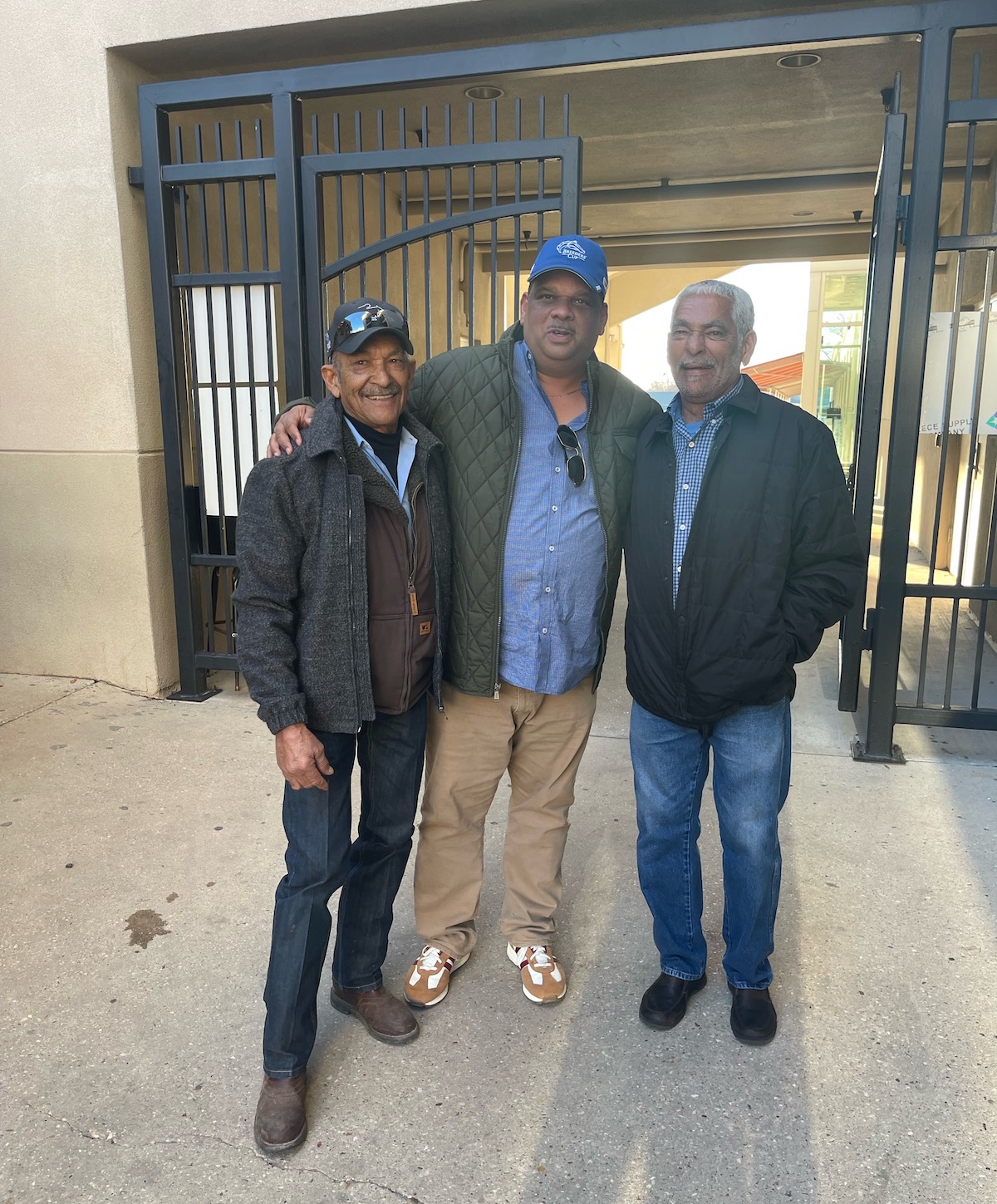
“That’s all I ask,” he added with a laugh, “and we’ll build a powerhouse stable in-house.”
It is this kind of family involvement and a heritage with horses that has been the key to centuries-old Black participation in Louisiana racing.
“It’s in our blood,” said Chatters, who has been president of the Louisiana Horsemen’s Benevolent and Protective Association for the past ten years.
Well-trodden path
Referring to the Lafayette area, Chatters outlined a typical scenario that is the well-trodden path to the racetrack.
“You have access to tracks and training tracks,” he explained. “Daddy’s a trainer, and the whole family grooms. If we’re lucky enough to have a brother or cousin light enough to gallop horses, we develop them. We pull it together to make it work, and this is the way we can participate in a very expensive game and sport.”
A family member may move between gallop rider, assistant trainer, trainer, groom, and owner. “It just depends on what’s going on financially at the time,” said Chatters.
It is not uncommon, for instance, for a gallop rider working a horse in the morning to train horses for others or himself on the same racetrack.
For example, Chad Mouton is a mainstay among exercise riders at the Fair Grounds in New Orleans who gallops an average of eight horses daily but also has four horses he trains and races. Not surprisingly, in a sport where racing is typically a family affair for Blacks, Mouton, his wife, and a cousin are partners on what he said are a couple of horses.
Family involvement with racing typically goes back several generations. According to Mouton, his great-grandfather Wilton LeBlanc was “a racetracker all over the US, mainly, I think, Chicago and Detroit, and he did Arkansas at Hot Springs and the Louisiana circuit.
“I used to go with my grandfather [Wilton’s son] and then my uncle to bush tracks,” Mouton added. “My uncle had four sons that trained horses and groomed, kind of did a little bit of everything. I would help him muck the stalls and groom and hotwalk. Did all the basic stuff.”
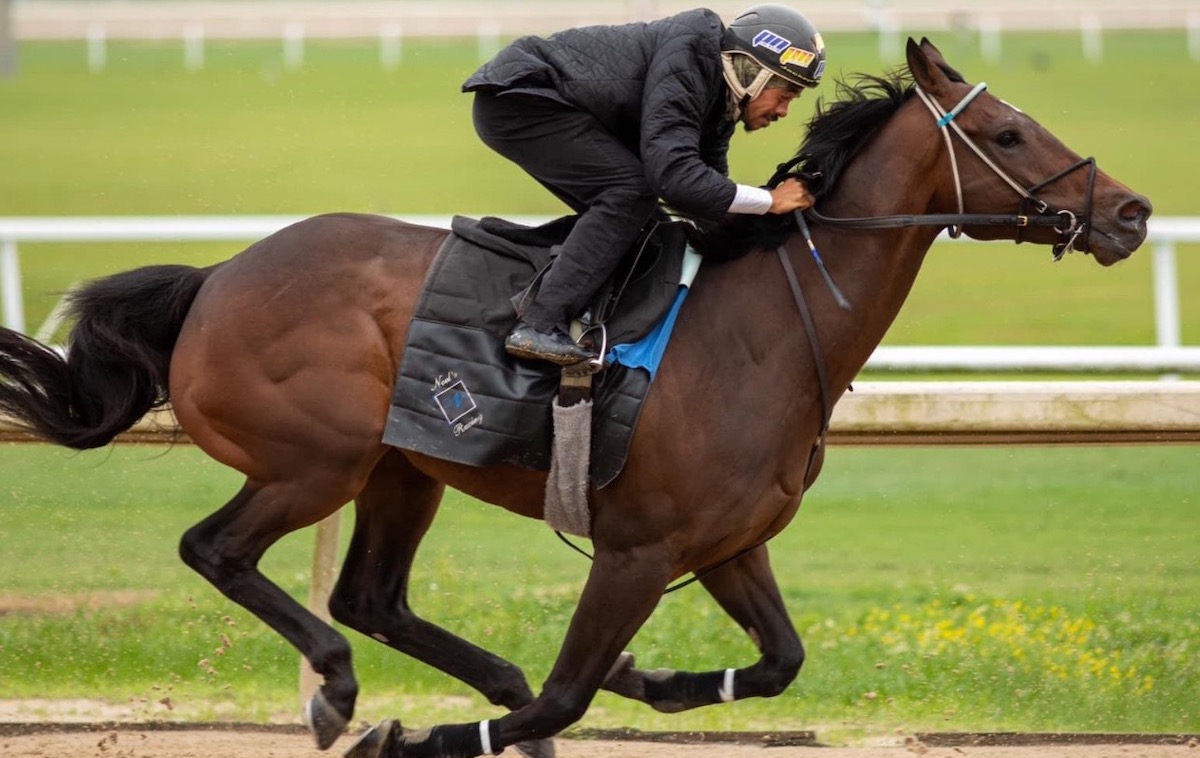
In the Chatters family, horsemanship also began with another great-grandfather, ‘Papa Joe’ Balthazar, whose ‘racehorses’ were plow horses during the week and ‘bangtail’ runners at bush tracks on the weekend.
Leslie Balthazar, 72, a former trainer and exercise rider, and a third cousin of Chatters, remembers Papa Joe training horses in a limited space with even more limited human resources.
“He didn’t have people to ride horses,” Balthazar said. “He ‘gypped’ them horses around on a rope and had a hole cut in the ground where they went around there so much. They would haul ass around that circle.”
Early age
Participation at an early age was almost a given for kids like Balthazar. He became a jockey and was leading rider at Park Jefferson, South Dakota’s first and only pari-mutuel racetrack, from 1974 to 1976. Now closed, Park Jefferson also was where a teenage Bill Mott, the future Hall of Famer, cut his teeth as a trainer.
Balthazar moved from jockey to exercise rider in 1984 and galloped the Al Stall-trained Star Guitar, who won 24 of 30 career starts, earning $1.7 million in purses. True to form, it would seem, Balthazar would add ‘trainer’ to his resumé in the early 1990s.
“I had about 18 horses at one time – I did all right,” he said, adding that he trained both Thoroughbreds in Louisiana and Quarter Horses in Texas.
Balthazar now owns a horse transporting business, and while he said he doesn’t train or ride any more, he “galloped a little bit this year,” although he vowed, as 2024 dawned, “I’m not going to ride them ol’ damn horses!”
The factors leading Black Americans in significant numbers to racetracks in Louisiana are the same in many respects as tended to drive any young boy in the region from bush tracks to becoming jockeys.
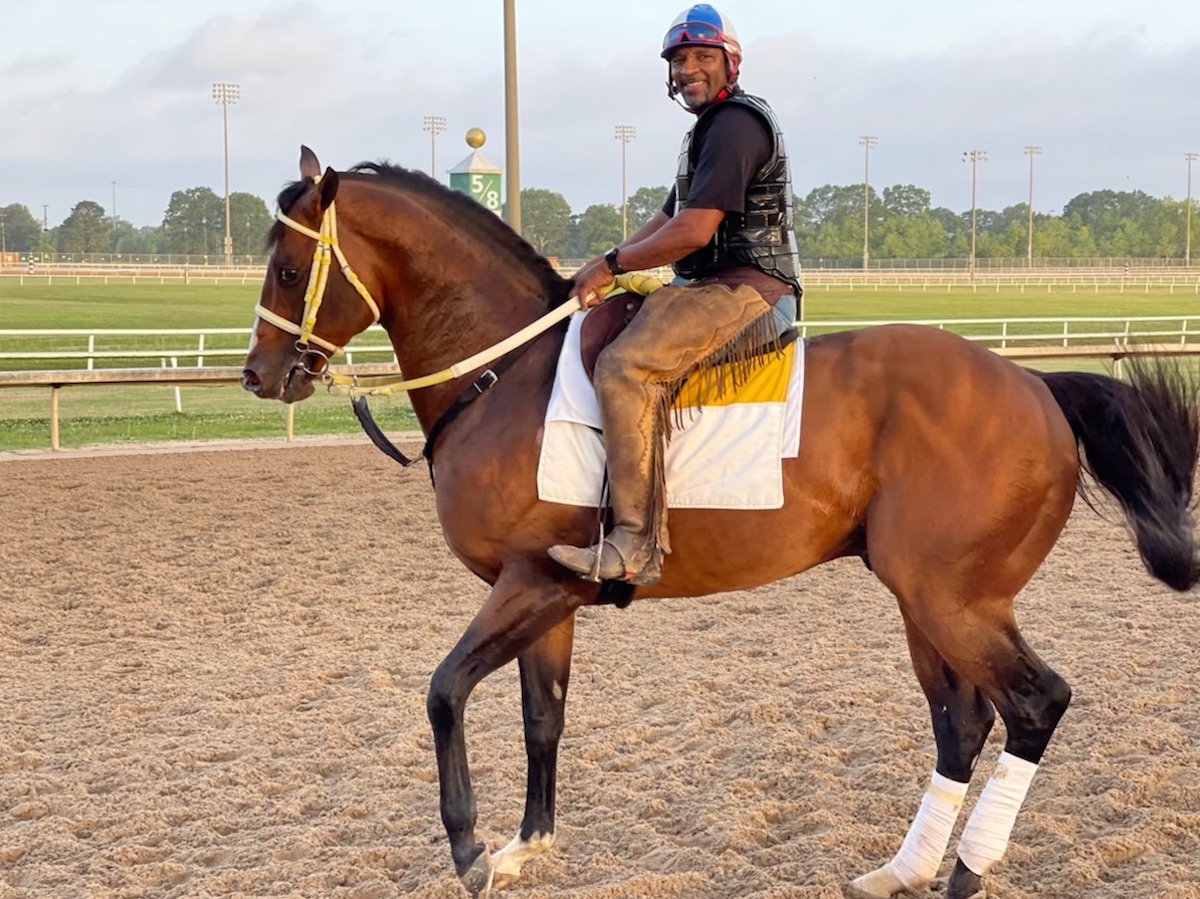 Horses were necessary for farming in rural southwest Louisiana as well as other parts of the state, and kids grew up with horses.
Horses were necessary for farming in rural southwest Louisiana as well as other parts of the state, and kids grew up with horses.
Riding the rail
Diminutive boys at astoundingly young ages was the formula for putting youngsters like Balthazar on the backs of horses ‘riding the rail’ at bush tracks with money at stake.
George Leonard, for example, might not have been the youngest competitor in bush track history, but at least he’s in the conversation.
“My dad was a horse trainer,” said Leonard, 58, who earned a national reputation by running the stakes-winning filly California Angel in the 2021 Breeders’ Cup at Del Mar. “I’m a second-generation horse trainer, and I was four or five years old when I first got on a horse. I was riding races when I was five years old.”
Leonard added that, unlike other child riders, he rode racing mounts with no straps keeping him aboard. He rode bush tracks for seven years as a child, but by age 12 he had grown too big and moved on to exercise riding. He ‘retired’ from the saddle at the ripe old age of 16 to pursue training, waving the white flag to his DNA. Leonard stands 6ft2in and weighs in at 245 pounds.
For Mouton, inspiration to ride may have come from a (white) fourth-grade classmate, Jamie Theriot. “He used to tell me, ‘I’m galloping at the farm for my dad,’” Mouton explained. “I said, ‘No way, man.’ He said, ‘I’m telling you, I’m galloping horses.’”
Mouton was to learn his classmate was indeed telling the truth, but his own ambitions never went beyond being an exercise rider. Mouton was soon too big to consider a career as a jockey – in contrast to Theriot, who has gone on to ride more than 2,500 winners to become just one among a multitude of leading Cajun riders alongside the likes of Desormeaux, Delahoussaye, Borel and Perret.
So the question lingers: with such a deep and abiding tradition of Black riders in Louisiana, why aren’t many of them joining the likes of Kendrick Carmouche and just a few others from Cajun country at modern racetracks? After all, as is well documented, in colonial times and throughout the 19th century, Black jockeys dominated the scene; but in 2000, Lafayette-born Marlon St. Julien became the first African-American to ride in the Kentucky Derby for 79 years when he finished seventh on Godolphin’s Curule.
Bigger kids
In fact, there has been a decrease in the emergence of jockeys from Cajun country, no matter their racial profile. The demise of many bush tracks in the state has created a lack of entry level opportunities. Farming and economic conditions have improved along with nutrition, and kids are bigger than in past years, leading to a dearth of jockey-sized teenagers and young adults.
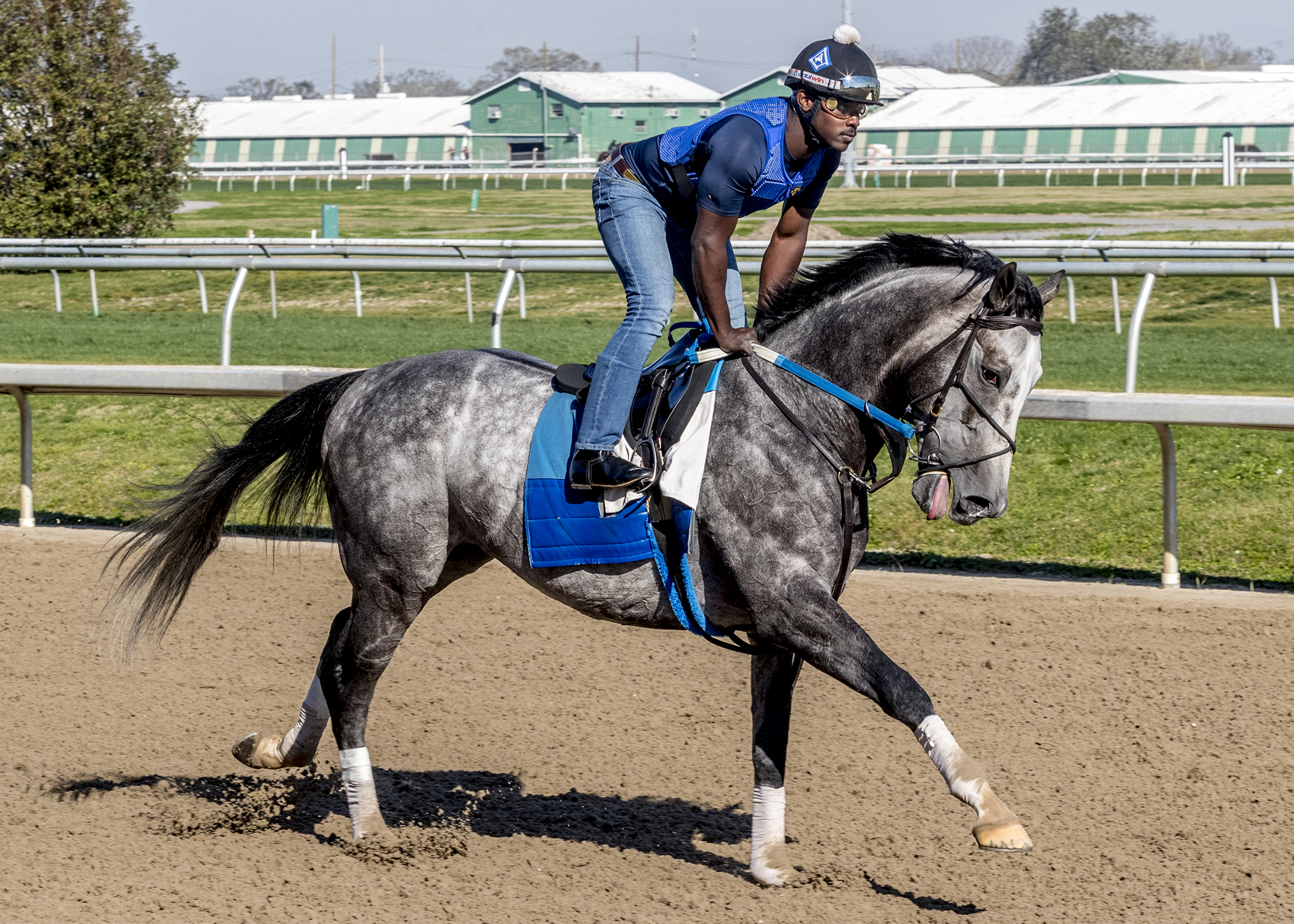
Exercise riding, however, is a wide-open field, especially for young Black riders with experience on family farms. The hours and the income, along with the steady business of riding eight to 10 horses every morning, is a strong inducement for any young Black man with the skills for the job.
Benard Chatters said weekly pay for exercise riders at the Fair Grounds is $800 to $1,000. Yes, the work is seven days a week, but, according to Chatters, “It’s four hours a day or less. You work from six to ten in the morning and that’s it. You clean your tack and you’re out of there. It’s a good way to make a living.”
In addition, as evidenced by so many Black men on the Louisiana racing circuit, exercise riding can be a stepping stone to becoming an assistant trainer, trainer, and even an owner.
And chances are, there is a cousin, uncle, or other family member to help make that happen, because the “country,” as Chad Mouton described rural Louisiana, is still a productive breeding ground for horsemen.
“Something,” Mouton said, “you can always look up to.”
• Visit the Fair Grounds website and the Delta Downs website
Jay Hovdey’s Favorite Racehorses: Smarty Jones – ‘You know, this is America’s horse!’
Take me home country roads: celebrating the 90th anniversary of Charles Town
View the latest TRC Global Rankings for horses / jockeys / trainers / sires


